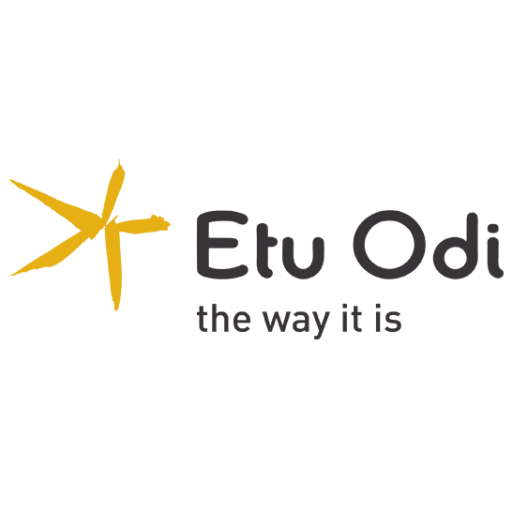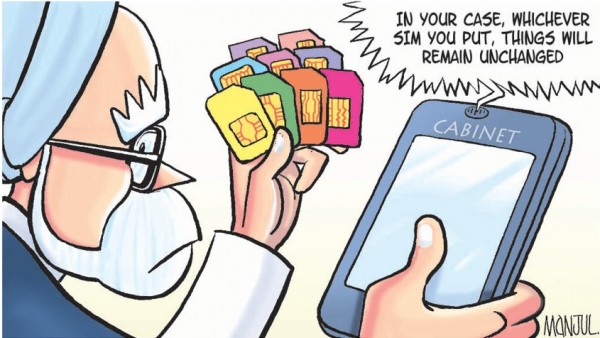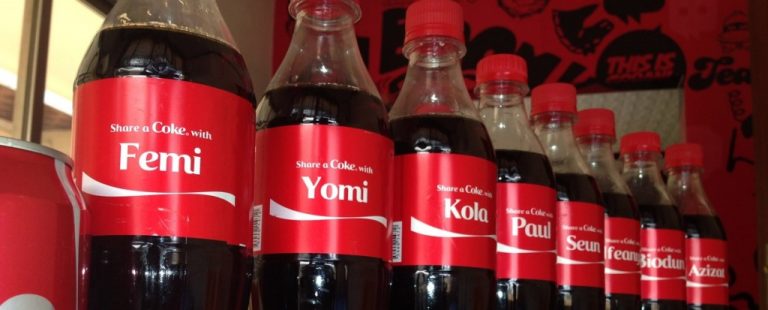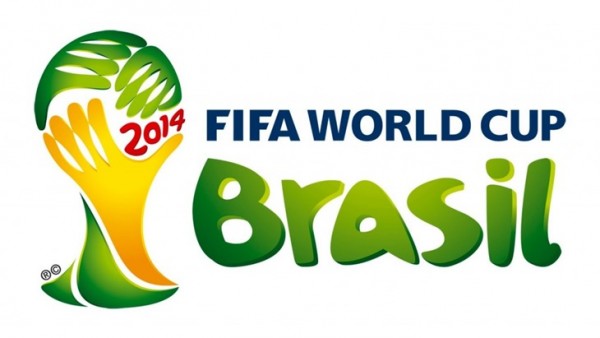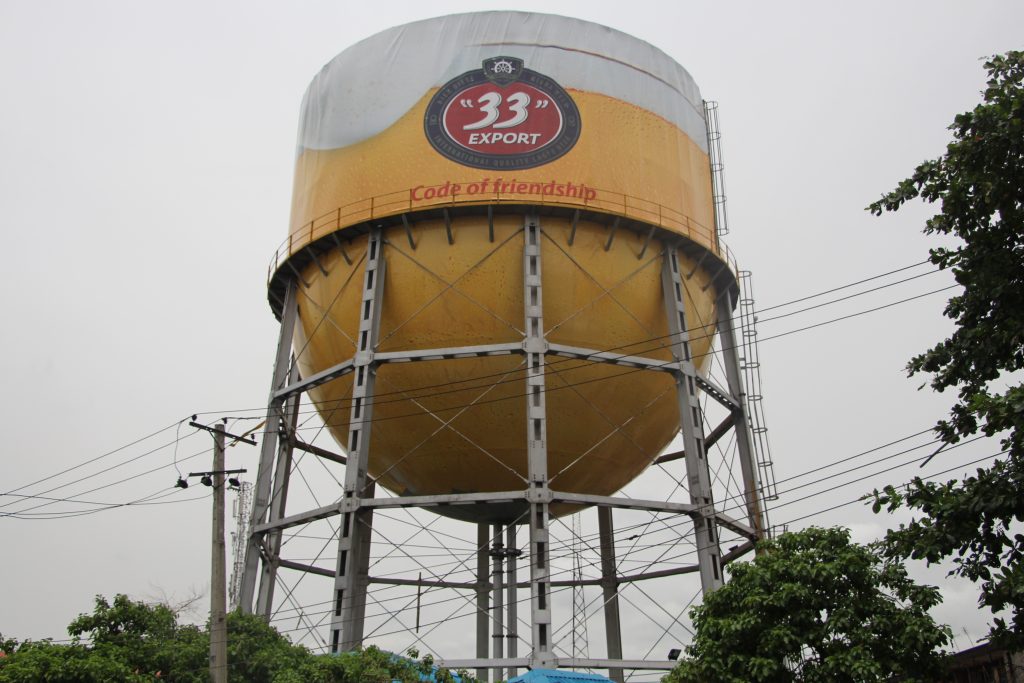What is Mobile Number Portability?
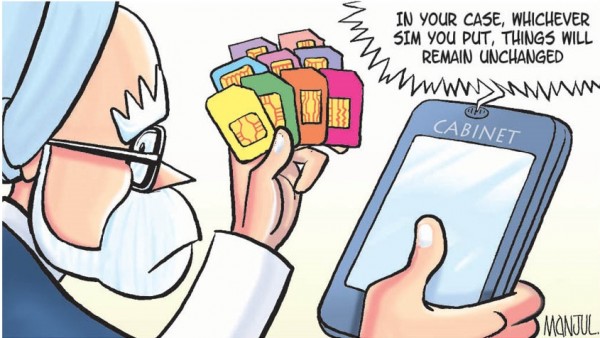
One of the toughest decisions that can be taken by any mobile phone user in Nigeria today will be to discard a line because the user is not enjoying the best quality of service from the operator. It becomes more difficult if you have been using the line for say five to six years and it is your officially recognised line by business associates, family and friends both at home and abroad.
Changing one’s cell number and services provider simply because of an inefficient service delivery from a particular service provider may not guaranty that the new services provider will be efficient in the long run. Besides, the fact that it may require to jettison a previous number with which one can be associated, comes with its own challenges particularly for business minded individuals.
But is it possible to change your service provider and still retain your number for the new service? The common cliché goes: you cannot eat your cake and have it. But this definitely is not the case with Mobile Number Portability (MNP). Of course, with mobile number portability, you can eat your cake and still have it, which means that you can change your service provider without changing your number.
Simply put, the MNP is a process that allows subscribers to migrate from one network to another, in search of quality service, while still retaining their original phone numbers, regardless of the network the subscriber chooses to migrate to.
Where it all began
In Nigeria, there has been pressure from various quarters on the Nigerian Communications Commission (NCC) to implement its number portability roll out plans, although the regulator has said it could only commence after the ongoing Subscriber Identification Module (SIM) card registration which ends in September 2011
In a bid to deepen competition and force mobile phone operators to provide better service to their customers, the Nigerian Communications Commission, NCC, on Monday launched the Nigerian Mobile Number Portability service to guarantee freedom for telecoms subscribers.
The turf war among the country’s Global System of Mobile communications (GSM) service providers has effectively sifted to the Mobile Number Portability (MNP) terrain since the launch of the service in April.
The Challenges that resulted in MNP
With the liberalisation of the telecommunication industry in 2001, the story of Nigeria’s teledensity ratio, which was put at 0.4 per cent by the NCC and the International Telecommunication Union (ITU) in 1999 changed dramatically to 64.7 by April 2011, making the country one of the fastest growing GSM markets in the world. [3 ]
Meanwhile, amidst this growing figure and telecommunications industry boom is the challenge for quality and efficient service from the network operators. These challenges range from inter-network connectivity problems, network congestion and dropped calls. It is a common knowledge that Cell phone users in Africa, particularly Nigeria today carry three to four phones as a way of escaping from poor telecommunications service from either of the operators. This has also fuelled the rush for dual SIM handsets in the county
It has been a common phenomenon to dial a number and get error messages such as ‘Network busy’, ‘Network error’, ‘Your number cannot be completed at the moment’, ‘the number you are calling is incorrect, among many other disturbing and frustrating error messages from the operators. Today, many are condemned to bear the burden of carrying two to three phones around, in case one network interconnection failure at a crucial moment a call is to be made.
Besides, the issue of unfriendly tariff regime has surfaced as part of the need for the revolution. It is believed that with mobile number portability, competition will drive tariffs lower than its current position.
As a matter of fact, subscribers who had had a nasty experience from Customer Care Service of the telecoms operators would not but wish for freedom through MNP. Many subscribers are complaining bitterly about unfriendly manner at which some Customer Service agents attend to them. And that is even if their calls get through to the agents. In most cases, customers’ calls are not picked, while in some cases when the calls are picked, the agents would not be able to find solutions to the subscriber’s problem. Of course, with MNP, no telecom operator that wants to retain its subscribers will toy with them.
Benefits
Why should I bother porting anyways? Number Portability offers immense benefits to subscribers, allowing them to easily change service providers without having to notify their friends and colleagues of a number change. With number portability, a subscriber who is unhappy with a mobile services provider can switch to a provider of choice while retaining his existing mobile number. In short, what this means is that if a user moves to another mobile network, the new network operator would allow the individual to formally use his/her SIM card without modification to its original telephone number (including original network code) .. The user’s number could then said to have been “ported”, in MNP terminology.
In addition, Mobile number portability could reduce the complaints of poor quality of service on the network of certain operators, as subscribers would have the opportunity to change operators at will and retaining only the number which could also serve in certain quarters as users identification number. Besides quality assurance, MNP also has the tendency of engendering tariff reduction as competition gets stiffer and help in reducing crime, since it may be difficult for a single user to own multiple mobile number as it is currently applicable.
Another benefit to mobile phone users is the fact that even customers who do not choose to port their numbers to a new network would benefit from the new tariffs, promotions, features, and quality of service improvements that are likely to roll out under the MNP environment.
Moreover, with number portability, subscribers can save money by having the best plan they like: while some people hardly leave the city they live in and want more features, others might travel a lot, especially to remote areas and need better signal reception. Mobile Number Portability allows both types of users to have the same number without having the additional headache.
For the mobile subscribers, porting number means no more endurance for poor quality of service and a tariff regime that is not very pocket friendly for the majority of consumers. It is a form of empowerment for the consumers to demand their rights from the operators and they express this by switching to where they would be served right. And for once, many Nigerian subscribers would be eased off the burden of carrying many phones around, although many are used to it already. Number portability avails subscribers opportunity to switch to the most reliable network at any time without losing their number.
Again, with number portability, users of mobile CDMA can switch to GSM network using the same number and at the same time GSM user can switch to CDMA if they so desire while still using their mobile number. Indeed, it is a win-win situation for the subscribers under the new regime as all operators work assiduously to ensure they are satisfied.
Number portability is essential to maximize the benefits of a competitive telecommunications market.
What obtains in the rest of the world
Globally, Singapore was the first country to implement MNP in 1997, followed by Hong Kong in 1999 and Australia in 2001. In Africa, South Africa took the lead in 2006 followed by Egypt in 2007 while Kenya in April 2011 and recently, Ghana in July 2011. Of late, many countries have adopted the MNP model to prevent market doldrums and putting pressure on service providers to furnish more services at a competitive price level. However, it has not been able to produce any significant results in these markets.
“Around the world, MNP has been a mixed bag of success and failure. It has been there in several parts of world but has not taken off in a big way. However, we are ready and believe that it allows more and more customers to come to our network and enjoy the services,”
The successful implementation of MNP is associated with high porting rates which signify that the facility is being utilized and confirms that the service is in demand. The adoption of MNP in Hong Kong, South Korea and Australia has been touted among the most successful, with porting rates of over 6 percent. These successes can be attributed, among others, to low porting times, little or no charge allocated to subscribers for porting numbers, promotion of the service by regulators and subscriber awareness of the service.
In Australia, the regulator played a significant role in educating subscribers about the service, and porting times were limited to just a few hours. But more often than not, the adoption of MNP has failed to achieve the anticipated high porting rates as in the case Ireland, Finland, Malta, UK, The Netherlands, Taiwan, Japan and Singapore.It was suggested that high porting charges, long-winded applications, lengthy porting times, and handset subsidies have suppressed porting on a large scale. Researchers explains that operators in France stipulate advance notification of three months if customers wanted to break their contracts in order to join another network.
In Finland, operators imposed minimum contract periods, which drove down porting rates from approximately 40% to 10%.In the United States, the Telecommunications Act of 1996 required each Local Exchange Carrier (LEC) to provide number portability, defined as “the ability of users of telecommunications services to retain, at the same location, existing telecommunications numbers without impairment of quality, reliability, or convenience when switching from one telecommunications carrier to another”.
The Brand Port Wars
The war started once the NCC commissioned MNP. The race to get the largest number of porters to their camps started. The war started with a debut from MTN taking a swipe at Etisalat with their ‘I don port’ Ad.
This advert caused a lot of debates from different camps directly and indirectly involved in the saga. Following this, other brands began to drop their versions of MNP adverts. Riding on the success of their Ad, MTN went on to do a dance competition where dance crews were called upon to create their own version of the ‘I don port’ Ad
MTN definitely succeeded is getting the attention of everyone. Their advert became the talk of the town. Almost everyone had something to say about it. But did it make people port? That’s the big question
A research conducted answered this question and some other questions from the MNP debate. According to research, the 2 major reasons why people have ported or will port are tariffs and data service quality. As for where people have ported to or are thinking of porting to, Etisalat was the most popular choice.
The reason why people chose Etisalat was because of their tariffs and especially their data service quality. This is probably as a result of the growing popularity of the internet, especially on portable devices.
For most consumers, they see no use porting. They will rather have multiple sim cards than port. ‘Now that technology has made having multiple sims easier, I’d rather have multiple sims than port’ said a respondent. Consumers further mentioned that choosing between the networks is like being between the devil and the deep blue sea. No choice is the best so it is better they have multiple sims so they can switch to whichever network benefits them at the time. Some also agreed that there are various intra-network benefits that they want to gain from.
While some don’t think they will port at all, some are waiting till the porting process is a lot more seamless before the consider porting or which camp to port to.
This research found that there are still some people who do not really understand what MNP is or haven’t really grasped and settled with the idea. These ones still do not believe that they can carry their numbers from one provider to another provider just like that.
The results from a similar survey conducted by Eskimi were corresponding with the above findings. Their research found out that only 50% of the users actually knew what is number portability and that they can switch to another network without changing their number.
As a result of their findings, they are preparing to launch a number portability marketing system, which will ease the process of number portability by collecting porting requests from users.
“We see some complaints from the research that customers had to come to the mobile operator outlet more than 1 time. With the new number portability system we also hope to solve these issues customers face”, Eskimi Director commenting on the benefits of the system.
From the above, it can be concluded that functionality is the main precedent of porting. According to one of the NCC officials, we need to settle the issue of infrastructure before we can get MNP right or else it will just be another futile exercise.

